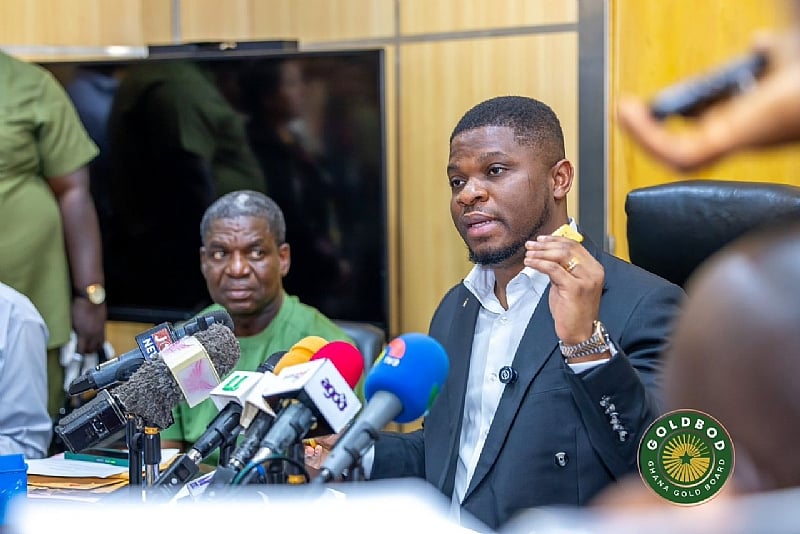The Ghana Gold Board (GoldBod), a recently established statutory body tasked with promoting sustainable mining and supporting the national fight against illegal mining (galamsey), has been facing accusations of fueling the very menace it was created to combat. Critics allege that GoldBod is purchasing gold from unlicensed miners, thereby inadvertently encouraging illegal mining activities and undermining the government’s efforts to curb the environmental and social devastation caused by galamsey. These concerns were amplified following President John Dramani Mahama’s remarks during a media encounter, where he seemingly suggested that even if GoldBod were buying gold from illegal miners, the country would still benefit.
Sammy Gyamfi, the Acting Chief Executive Officer of GoldBod, vehemently denies these allegations, branding them as baseless and illogical. He emphasizes the nascent stage of the institution, highlighting that it was established merely five months prior and cannot be held responsible for a problem that has plagued the nation for decades. Gyamfi argues that the existence of galamsey predates GoldBod’s inception, citing instances of widespread protests against illegal mining in the previous year when the Gold Board was not yet in existence. He maintains that attributing the long-standing galamsey crisis to a five-month-old institution is a misrepresentation of the facts and a diversion from the real issues.
Gyamfi further clarifies the mandate of GoldBod, emphasizing its role in promoting sustainable mining practices and supporting the national fight against galamsey, rather than regulating or enforcing mining laws. He distinguishes GoldBod’s responsibilities from those of the Ministry of Lands and Natural Resources and its associated agencies, such as the Minerals Commission, which are explicitly tasked with combating illegal mining. According to Gyamfi, GoldBod’s mandate is to complement these efforts while engaging in gold trading, as stipulated by the Gold Board Act.
To substantiate his claims, Gyamfi points to GoldBod’s tangible contributions to the fight against illegal mining. He reveals that the institution has already invested significant resources in supporting anti-galamsey operations, including a donation of five million Ghana cedis and five Toyota Hilux vehicles to the National Anti-Illegal Mining Operations Secretariat. He further pledges continued support, framing this financial and logistical assistance as evidence of GoldBod’s commitment to combating illegal mining. He questions how an institution actively investing in the fight against galamsey could simultaneously be accused of promoting the same illicit activity.
The controversy surrounding GoldBod’s alleged involvement in fueling galamsey highlights the complex challenges faced by Ghana in addressing illegal mining. The accusations against GoldBod, regardless of their validity, underscore the need for clear communication and transparency regarding the roles and responsibilities of various government agencies involved in the fight against galamsey. It also emphasizes the importance of public awareness and understanding of the complexities of the issue, particularly given the long history and deeply entrenched nature of illegal mining in the country.
Moving forward, it is crucial that all stakeholders, including government agencies, civil society organizations, and mining communities, work together to address the root causes of galamsey and find sustainable solutions. This requires a multi-faceted approach that encompasses not only law enforcement and regulatory measures but also economic diversification, community engagement, and environmental rehabilitation. The debate surrounding GoldBod’s role should serve as a catalyst for open dialogue and collaborative efforts to eradicate illegal mining and promote responsible and sustainable mining practices in Ghana.


